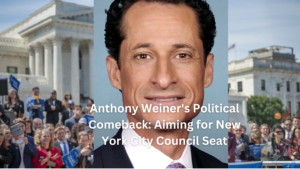Elon Musk’s unprecedented $10 million donation has turned Wisconsin’s Supreme Court race into the most expensive judicial election in U.S. history. This financial push has raised critical questions about the role of billionaires in state judicial elections and how such contributions impact democracy. Understanding the key aspects of this election will help voters see how political funding shapes judicial decisions.
The Billionaire’s Influence on the Race
Wisconsin’s Supreme Court race was traditionally a low-profile event, but Musk’s massive financial backing has changed that. His $10 million donation, funneled through his super PAC, America PAC, is expected to favor conservative Judge Brad Schimel over liberal Judge Susan Crawford. This has intensified debates over how wealthy individuals can steer elections in their favor.
Political analysts argue that such large contributions could influence the court’s future rulings on critical issues such as:
| Issue | Potential Impact of Schimel’s Election | Potential Impact of Crawford’s Election |
|---|---|---|
| Business Laws | Favorable policies for corporations | Stricter regulations on big business |
| Voting Rights | More restrictive voter laws | Expanded voter rights protections |
| Labor Laws | Employer-friendly policies | Stronger protections for workers |
| Free Speech Laws | Less moderation on social platforms | Tighter rules on misinformation |
This table highlights why Musk’s donation is significant—it could shape the court’s stance on fundamental issues for years to come.
Controversy Over Musk’s $1M Giveaway
Musk’s involvement in the race sparked further controversy when he proposed giving away $1 million to two randomly selected Wisconsin voters as a reward for participating in the election. While Musk claimed it was a move to encourage voter turnout, legal experts pointed out that Wisconsin law prohibits offering anything of value in exchange for voting.
Key Points of the Controversy:
- Wisconsin Law: It is illegal to provide incentives for voting, which led to legal challenges against Musk’s initiative.
- Backlash: Critics accused Musk of trying to manipulate voter turnout for his preferred candidate.
- Legal Consequences: Facing pressure, Musk withdrew the offer, but the controversy added another layer to the debate over billionaires’ influence in elections.
The debate surrounding this issue raises an important question: Should ultra-wealthy individuals be allowed to play such an active role in judicial elections?
The Stakes for Wisconsin and the Nation
The winner of this election will directly shape Wisconsin’s judicial landscape for years to come, deciding on cases related to business regulations, voter rights, and political policies. However, the effects go beyond just Wisconsin.
Why This Election Matters Nationally:
- Precedent Setting: If Musk’s financial backing successfully shifts the election, other billionaires may adopt similar tactics in future races.
- Judicial Independence: Increasing financial influence could blur the lines between fair justice and political favoritism.
- Political Mobilization: Democrats and Republicans are using Musk’s involvement to rally support and increase voter turnout.
The massive $80 million total spent in this election proves how high the stakes are—not just for Wisconsin, but for the nation.
Conclusion
As Wisconsin voters head to the polls on April 1, this election has become more than just a judicial contest. It is a test case for how billionaires can shape state courts through political donations. Will Musk’s $10 million bet pay off and reshape Wisconsin’s judicial system, or will voters push back against the growing influence of wealth in elections?
The final outcome will serve as a case study for future elections, influencing how political funding is perceived in America. Regardless of the result, this race has already set new records in spending, engagement, and public interest.
[USnewsSphere.com / m]





